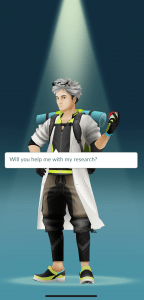
I am reviewing applications for the Fall 2026 cohort admissions cycle, affiliated with the Clinical Psychology major in the Psychology doctoral program at Wayne State University.
Applications are due around December 1. Information about the application process can be found at the Psychology Department website. This page about the clinical psychology program is useful because it lists the faculty members who are open to taking a new student in this admissions cycle.
We are not currently accepting new undergraduates or post-bach volunteers.
Answers to FAQ:
I don’t have specific, required criteria for applicants. It’s a competitive process that taps common elements each year and also shifts each year depending on the current and forecasted projects in our lab.
Common elements: Grades matter, especially in writing-intensive and math/statistics courses. If you will not enjoy the challenges of learning psychometrics that form the foundation of psychological assessment, you probably would not be happy with us. Demonstrated interest in research is essential. If you will not genuinely enjoy the research side of the journey to becoming a scientist-practitioner, you probably would not be happy with us. Match with our interests in psychological assessment and with our current team are essential. If you would not be fascinated and engaged in the kind of work we do, you probably would not be happy with us. Happiness in the forms of joy in your work (even when it’s arduous) and connecting with the members of our lab community (the easiest item on this list) is essential.
I evaluate applications holistically. I believe applicants should have the opportunity to submit all information they feel represents their strongest application package. If something is not covered in the standard application materials that you feel would strengthen your application, you may send me that information separately. If you believe one of the essential elements of the application underestimates your experience or abilities, you can address it in your essay and include additional supportive data. I encourage you to focus on information that you believe depicts the strongest representation of your preparation for doctoral studies and capacity to excel in your research, clinical work, teaching, and service to the community and our field.
We have a history of welcoming accomplished musicians, athletes, dancers, actors, artists, martial artists, and the like. The elements common to success in graduate school are dedication to excel, persistence, appreciation for attention to detail, resilience, and openness to input that would improve outcomes.
Interviews and complex exchanges outside the application process: We have a general policy that we don’t conduct interviews outside the formal application process. The volume of applications to our program and specifically to our lab is very high. Our lab members, especially the students, are very busy and could not meet individually with everyone who requests it. If you are invited to interview, you will have many opportunities to connect with me and other members of our lab. You can, of course, reach out to let me know about your interest and upcoming application: rapport@wayne.edu. I welcome that and will save your information. If you have special questions that are not addressed in this FAQ section or elsewhere on our websites, you can reach out to ask them. However, if you have general questions about my mentoring style (it’s fabulous) or our lab members (equally fabulous), please hold them until interview invitations are extended.
What are we working on now? We have multiple, related studies of emotional and interpersonal functioning after acquired brain injury (ABI) ongoing as dissertation and thesis projects. We have a very interesting test that assesses memory for emotions separately from emotion recognition. We are also studying a very cool new visual memory test. These studies have been designed to run with synchronous teleadministration. We have a longstanding fascinattion with the concepts of cognitive reserve and awareness of deficit. We have multiple opportunities to work with datasets and projects associated with our Traumatic Brain Injury Model System (TBIMS) site, the Southeastern Michigan Traumatic Brain Injury System (SEMTBIS)), as well as other existing datasets investigating older adults. We garnered another major grant to continue the SEMTBIS that will focus on cognitive and psychosocial well-being outcomes of people with moderate to severe TBI. See the blog post about this 5-year grant from the National Institute on Disability, Independent Living, and Rehabilitation Research (NIDILRR). In general, the topics we pursue are driven by student interest combined with careful consideration of opportunity and feasibility. We have many ideas and opportunities for students to pursue, but it is often the case that students propose a good idea that is both in the ballpark of my wheelhouse and feasible, and they are supported in pursuing their own novel path. For example, one student is pursuing Spanish-language adaptations of measures used to assess financial capacity and risk for exploitation.
Other opportunities and expectations. Lab members typically collaborate and are provided opportunities to earn coauthorships on each other’s projects. Lab members typically volunteer to collaborate with me on reviewing journal articles, which hones skills in research design and provides an inside scoop on the review process. Lab members are typically mentored in submitting one or more applications for research funding or individual fellowship. Everyone will publish; some will publish more than others by choice.
We are not currently collecting data on projects associated with performance validity, driving after brain injury, or working with other clinical samples, such as persons with MS, ADHD, or hearing loss. We could return to research on hearing loss given student interest.
